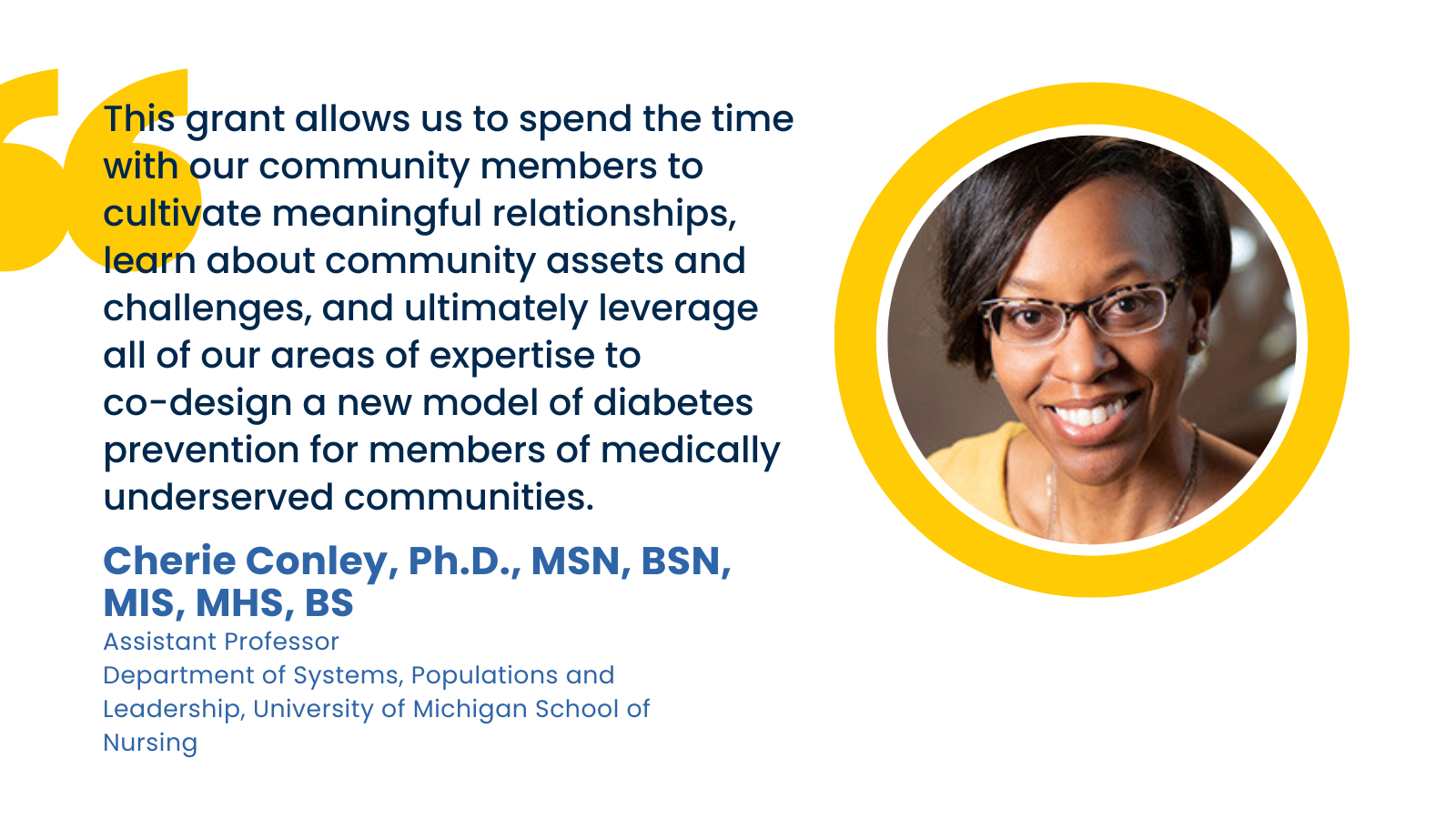Supporting Innovative Dissemination and Implementation Research

Closing the gap between science and practice is vital to improving care in our health systems and communities. The MICHR Dissemination & Implementation Science Catalyst (DISC) Implementation Science Network (ISN) promotes innovative dissemination and implementation research, such as Dr. Cherie Conley’s research on integrating a weight loss peer support program in African American Faith Communities to decrease diabetes risk.
Three components are central to DISC-ISN’s work:
- Spark – Leveraging talent to promote implementation science learning opportunities
- Seed – Promoting novel and competitive implementation science-driven initiatives
- Spread – Building Implementation Science capacity in health systems and communities
One way DISC-ISN is seeding dissemination and implementation research is the DISC-ISN Pilot Grant. The award’s inaugural recipient is Cherie Conley, Ph.D., MSN, BSN, MHS, Assistant Professor the Department of Systems, Populations and Leadership at the University of Michigan School of Nursing.
By 2050, global diabetes cases are expected to double to 1.3 billion, with African Americans being 60% more likely to be diagnosed with diabetes and facing higher risks of associated complications. The CDC’s Diabetes Prevention Program (DPP) promoting weight loss for risk reduction has limited success in African American populations. The suboptimal effects of diabetes prevention programs in community settings have partly been attributed to challenges with participant retention and program implementation, specifically overreliance on resources and organizations with no ongoing presence in the community.
Dr. Conley’s project, “TOPS DPP: Decreasing Diabetes Risk in African American Communities,” seeks to capitalize on how participants themselves might engage and empower each other to reduce diabetes risk through tailoring the DPP with TOPS (Take Off Pounds Sensibly), an effective, peer-to-peer weight loss support group that has had limited dissemination into underserved African American communities.
“This project is really about building the foundation for programs that have the potential to support sustainable change in medically underserved areas and in populations trying to overcome significant barriers to optimal health,” she says. “It is especially exciting because we are increasing community capacity to combat chronic disease by taking an asset-based approach, as opposed to a deficit model, that first acknowledges and then leverages existing community resources like peer support.”
In the 12 months supported by the DISC-ISN Pilot Grant, Dr. Conley is specifically working to gain an in-depth understanding of the facilitators and barriers to sustained participation in DPP and initiation of TOPS chapters in African American communities and to design an intervention and implementation strategy that addresses the key factors identified.

“Often when I apply for grants, resources are not permitted to be used for foundational work, which is really essential to develop and implement an effective community-based program,” said Dr. Conley. “This grant allows us to spend the time with our community members to cultivate meaningful relationships, learn about community assets and challenges, and ultimately leverage all of our areas of expertise to co-design a new model of diabetes prevention for members of medically underserved communities.”
The DISC-ISN Pilot Grant is now accepting round 2 funding proposals from U-M investigators. Funds can be used for a new standalone project or to enhance an existing research project which examines dissemination or implementation of an effective practice. Learn more about the grant here.